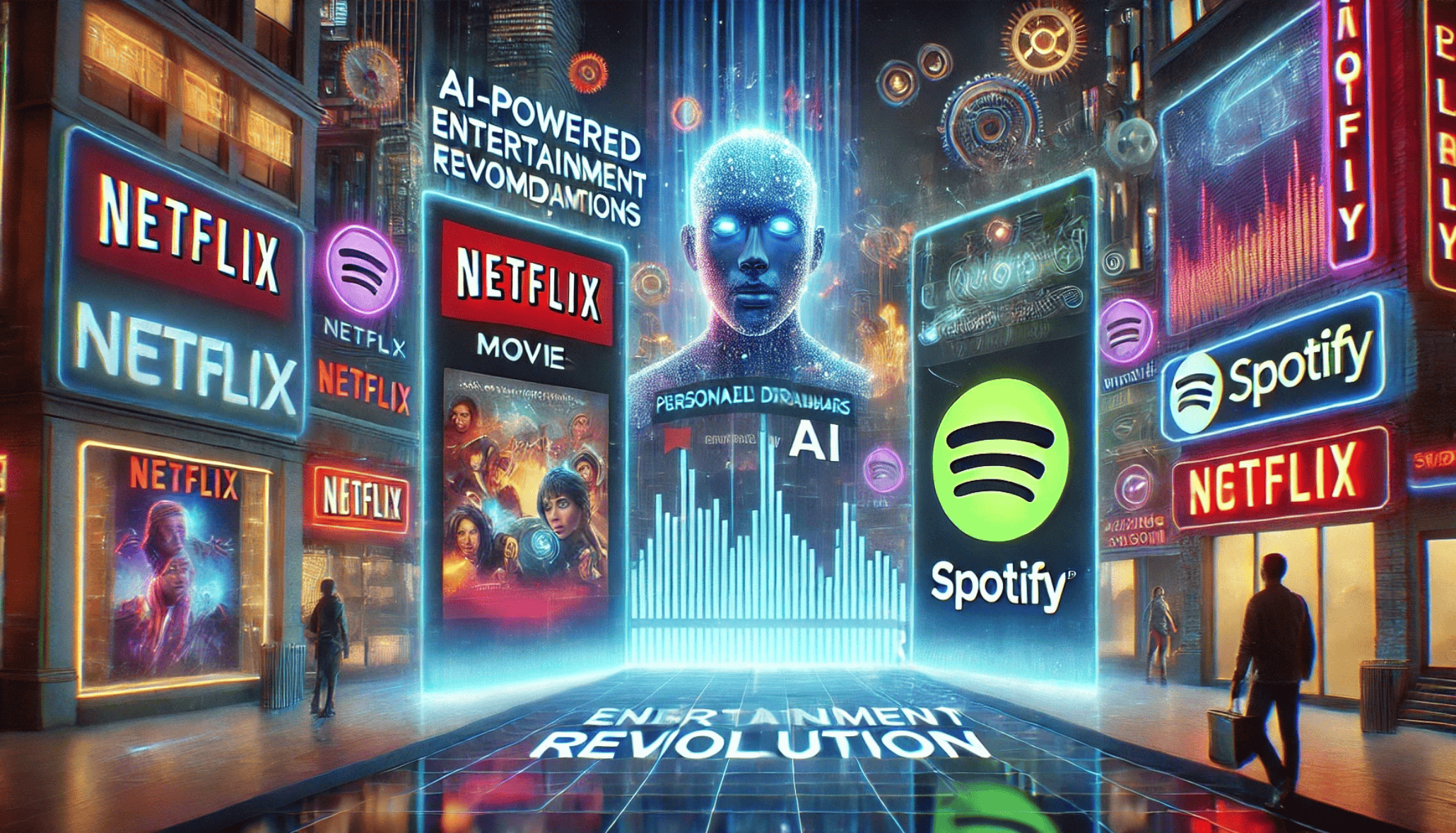How AI is revolutionising story-based marketing: Here’s a deep dive.
How AI is revolutionising story-based marketing: Here’s a deep dive.
Cutting through the noise and capturing an audience’s attention has become the challenge for every organisation.
It’s likely you’ve read the statistics that we’re exposed to between 6,000 and 10,000 messages every day? A quick calculation suggests our senses need to compute c.600 messages every waking hour. These messages come at us from TV, Radio, billboards, magazines, email, tablets, watches and phones.
And this means as business leaders, we need to compete even harder to get our message heard.
In effect, the two are aligned and can be rocket fuel when handled with care.
Every day, users share 14 billion images on social media – three times the activity seen in 2013—and upload 720,000 hours of videos onto YouTube. Organisations recognise that visual content in marketing can more than double engagement, with short-form videos currently driving the highest ROI of any social marketing strategy.
So if you’re an SME, with a finite budget to amplify your brand awareness and grow in a busy market, what is the solution?
Story-based marketing and Artificial Intelligence (AI).
Whilst storytelling is the clear methodology to communicate, AI is the channel that can generate content and amplify your message.
In effect, the two are aligned and can be rocket fuel when handled with care.
That’s why at 21StoryMarketing.com, we believe in mastering the power how brands connect with their audiences, creating personalised and resonant narratives that stand out with impact.
Here’s five emerging benefits how AI working in harmony with story-based marketing will elevate your brand to new heights.
1. Personalisation at Scale.
In the age of information, generic, vanilla messaging simply doesn’t cut it.
Consumers crave authentic and personalised interactions. AI-driven story-based marketing enables brands to tailor their messaging to individual audience segments, creating unique and memorable experiences by user.
Through machine learning algorithms and data analytics, AI analyses vast amounts of data to identify customer preferences, behaviours, and pain points. This data enables marketers to craft the stories that resonate even deeper, reflecting the unique desires and challenges by audience segment.
How, Netflix and AI is revolutionising story-based marketing:
We know your Netflix interface will look radically different to mine, influenced by our potentially different viewing tastes. By analysing our viewing patterns, Netflix uses AI to highlight scenes and themes that are most likely to appeal to individual users, increasing engagement and viewer retention.
The result is a powerful connection between the brand and its audience, fostering loyalty and engagement. It’s that engagement that keeps us hooked.

2. Enhanced Audience Insights.
Understanding your audience is the first step in crafting compelling stories.
AI offers marketers an unprecedented level of insight into consumer behaviours, preferences, and trends. By analysing vast datasets, AI algorithms can identify patterns that might not be visible to the human eye, enabling marketers to refine their storytelling strategies.
Just imagine being able to analyse social media conversations, website interactions, and purchase histories in real-time. AI can sift through these data points, extracting valuable insights what resonates with diverse audience segments.
This information can then inform story arcs, tone, and messaging, ensuring that each piece of content aligns with the audience’s current mindset.
With AI-driven insights, marketers can tactically deliver beyond assumptions and guesswork, creating stories that are genuinely data-informed and strategically targeted. This ensures higher engagement rates, because the content resonates more closely with audience expectations.
3. Real-Time Adaptation.
One of the significant advantages of AI in story-based marketing is its ability to respond to real-time data.
For example, AI can monitor how users respond to different elements of a campaign and adjust the storytelling approach. This dynamic response system ensures that stories remain relevant, even as consumer interests shift.
Picture this:
You launch a storytelling campaign, and within hours, AI algorithms track which elements are resonating most with your audience. If a particular character, theme, or message is drawing more engagement, AI adjusts future stories to emphasise these popular elements.
This real-time adaptability enables marketers to continuously refine their messaging, maximising engagement, increasing response rates and ensuring cost-effective campaigns.
By optimising stories on the fly, AI enables brands to stay present with their audience, ensuring that the message remains relevant throughout the campaign.
By automating repetitive tasks, AI frees up marketers to focus on higher-level storytelling, allowing them to invest more time crafting narratives that drive emotional connections.
4. How AI is Revolutionising Story-Based Marketing with Automated Content Creation.
Creating a steady stream of engaging content is one of the biggest challenges in modern marketing.
AI tools have evolved to where they can complement the content creation process, generating drafts for blogs, social media posts, emails, and video scripts based on a brand’s story guidelines.
While AI-generated content still benefits from a human touch, it can save marketers significant time. For example, AI can create variations of a single story for different platforms, ensuring that each piece of content is optimised for its specific audience. This approach streamlines the storytelling process, enabling brands to maintain a consistent narrative across multiple channels, without overwhelming their creative teams.
By automating repetitive tasks, AI frees up marketers to focus on higher-level storytelling, allowing them to invest more time crafting narratives that drive emotional connections.
Spotify’s Personalised Storytelling:
A popular seasonal use of AI at Spotify is the annual Spotify Wrapped feature.
At the end of each year, Spotify users can access Spotify Wrapped, a personalised overview of our listening patterns. It highlights our most frequently played artists, songs, albums, and podcasts, as well as stats on total listening minutes and favourite genres. Spotify will even curate a playlist of our top 100 tracks in the last year.
Spotify’s annual “Wrapped” feature uses AI to analyse user listening habits and refine our predictions, to create personalised stories about our music preferences.
This data-driven approach converts our behaviour into a compelling narrative that we can share, extending the brand’s reach. This is just one approach how AI is revolutionising story-based marketing.

The most successful brands will be those striking the right balance between technological innovation and authentic human connection.
5. Predictive Storytelling for Future Trends
AI can do more than just respond to real-time data; it can also predict future trends and anticipate consumer needs.
The most successful brands will be those striking the right balance between technological innovation and authentic human connection.
This is a game-changer for marketers who want to stay ahead of the curve and anticipate their audience’s needs.
Predictive analytics enables brands to create proactive story-based marketing campaigns, positioning themselves as thought leaders in their industry. Whether it’s identifying an upcoming trend in sustainability, fashion, or technology, AI provides brands with the insights to tell stories that resonate with evolving consumer interests.
6. Enhanced ROI and Measurability
One of the most significant challenges in marketing is proving ROI. With AI, tracking the performance of story-based marketing campaigns becomes much easier. AI can analyse engagement metrics, and conversion rates, enabling marketers to measure the impact of each story on their audience.
This level of measurability is invaluable for refining storytelling strategies and ensuring that resources are allocated efficiently. By understanding which stories drive the most value, brands can focus their efforts on the narratives that yield the highest return on investment. This data-driven approach not only boosts ROI but also enhances accountability within the marketing team, as each story’s impact can be quantified.
Conclusion: How AI is revolutionising story-based marketing – A Perfect Partnership between human & machine.
Successful brands recognise that AI should enhance, not replace, human creativity. The essence of a compelling narrative remains rooted in human experience. Implementing AI for data analysis and content optimisation is ideal, whilst relying on human storytellers to infuse narratives with emotion and authenticity.
At 21StoryMarketing.com, we believe the most effective brand stories will be those using technology as the engine to amplify genuine human connections. It will be these emotions and values, that will drive those stories forward and become the heart of every brand.
By integrating AI into your storytelling strategy, you’re positioning your brand for sustained growth and meaningful engagement.
The future of marketing is here – we all have a story worth telling, so tell it.







